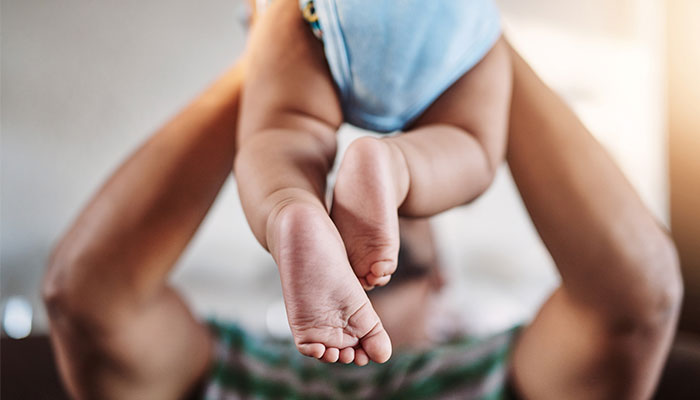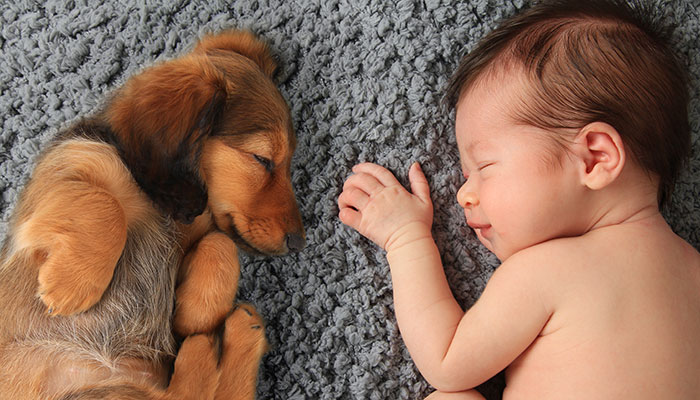When it comes to our relationships, does isolation make us hungry for more or craving (much) less? Will break-ups peak as people realise they don't actually like each other? Or will strength come through adversity, resulting in stronger bonds between couples?

Life imitating MAFS: Professor Fitness, from Macquarie's Department of Psychology, says our unreal situation has parallels with reality television show Married at First Sight.
The quick answer, according to Macquarie University’s relationship expert Julie Fitness: it depends. On what stage you’re at in your relationship, what kind of people you are … and how long isolation goes on.
“People being forced together like this is really hard, even for the closest relationships,” she says. “We’ve got an external stressor imposing a set of circumstances that people haven’t had to face before, producing a lot of anxiety and frustration, and that continual close contact means they are rubbing up against each other.
"It’s going to take a lot of strategising, communication, perseverance and accommodation if they are going to last the distance.”
For couples who usually just muddle along, it is an opportunity to grow together and look for mutual strengths.
It follows that lockdown will be trickiest for couples that haven’t been together long.
“Those initial fascinations will wear off much more quickly being in such close proximity to one another,” she says. “They have had to take the rose-coloured spectacles off and have concertinaed all that gradual unfolding of what is called the ‘good manners model’ of the relationship. Some people will run through the relationship quickly and be relieved to get out the other side of it.”
Bust-ups will also happen, she says, for couples whose relationships were already under strain.
“It’s hard to see how this period of enforced togetherness, without really good counselling and support, will help. If they don’t have the skills or motivation to repair the relationship or get it back into a better state, then I think this is going to be a really tough time.”
However, some relationships could experience positive, long term change.
“For couples who usually just muddle along, it is an opportunity to grow together and look for mutual strengths, interests and hidden talents to help build that culture of appreciation,” she says, adding that couples embracing the new normal as a team may come out of it stronger, even continuing to work from home or play games and musical instruments together.
- Kids with social anxiety are likeable and popular
- From Tiger King to COVID-19, can't tigers catch a break?
Couple survival also depends on individual character traits and reactions to stress – and it turns out you only need one person with high EQ in the partnership. Research into emotionally intelligent marriages has shown that a relationship can thrive in adversity as long as one partner has good coping strategies and can soothe the other as well as themselves.

Time is of the essence: Whether there is a boom in babies or a spike in divorces after this unusual period of forced togetherness can depend on what stage the relationship is at, says Fitness.
It's a pressure cooker to be sure, with families crowding workspaces, no sport, no outings, having to get involved in home schooling, perhaps even health anxieties, financial woes and the usual division of labour lines blurring. But in extraordinary times, says Fitness, it’s a good idea for individuals to make like Hamlet, and realise there is nothing either good or bad but thinking makes it so.
What cognitive techniques can you use to change your thinking and positively impact your situation?
1. Notice positives in your partner.
Research shows that couples need to see five positive behaviours to balance out one perceived negative. It’s important to actively look for and create opportunities to feel good about each other – make a cup of coffee, share a joke, relinquish the TV remote.
“Negative behaviours are very powerful as we are wired to notice things that are potentially threatening. Anything bad attracts our attention and positive things fly under the radar because we become used to them,” says Fitness, pointing out that people are often surprised after a divorce to find themselves missing things about their partner that they had stopped noticing.
2. Say thank you.
“Gratitude is a binding emotion – it reminds both of you how much you care about one another,” says Fitness.
3. But look after yourself!
Take a walk (alone), read a good book, steal a private nap. “Be as accommodating as possible while still having time for yourself,” says Fitness.
4. Forgive

To err is human: Fitness says couples who forgive each other's snappiness positively influence their overall happiness.
“When people are in a happy romantic relationship they tend to engage in more charitable and benevolent explanations for one another’s behaviours," says Fitness.
"Be forgiving of your own irritability and your partner’s snappiness and understand that you’re all under stress."
5. Let it go
Researcher Michael Cunningham demonstrated that people become hypersensitised to their partner’s behaviours, and go from seeing them as annoying to finding them disgusting and impossible to endure.
“In a relationship where you’re not seeing each other positively, you are more likely to explain those behaviours as a function of your partner’s inconsiderateness, poor personal habits, ignorance, maliciousness, malice, or that they’re doing it intentionally to hurt you,” says Fitness.
“Under normal circumstances, you can go away and talk to your friends about this or things can take a bit of time to unfold – but you are now in close proximity to one another and that can be very trying.”
You’ll need to work even harder to not let things fester.
6. Take responsibility for your own reactions
Professor Fitness’s workplace anger research has shown close contact can cause visceral reactions.
“You really want to escape; you want to avoid. In lockdown it is really hard to do that,” she says. “The question becomes: how are you going to cope with these annoying behaviours that previously you had respite from when you both went off to work? That you have started to think are intentional and a function of your partner’s rotten personality?”
Relationship happiness or unhappiness is a function of the relationship in your own head. Look at arranged marriages which often have a higher success rate.
The answer is to reflect on your own responses. Is it fair to blame your partner for this? Is it really about how insecure you are feeling?
Says Fitness: “I often say to students that your relationship happiness or unhappiness is a function of the relationship in your own head. Look at arranged marriages which often have a higher success rate than love marriages – you make decisions about what you can tolerate and the accommodations you are going to make, you adjust your expectations. They are rational strategies to lower the temperature in the house.”
7. Take it on as a team challenge
“If you are in a relationship and you are doing this isolation with a loved one or partner or even someone you kind of like, you have a huge advantage already,” Fitness points out.
“What if you were to reframe this or relabel the situation? That’s a healthy close relationship, the notion that you are working together as a team.”
Have a conversation with your partner about your habits that may be driving them crazy – the wet towels on the floor, or not showering enough – and make an effort to improve.
8. Get help
If your relationship is really struggling or was on the rocks already, check in with support services.
“You may have this long list of hurts and betrayals that you are trying to deal with and you’re stuck together,” says Fitness. “Get as much support and give as much space as you can but keep remembering that this is nothing to do with you. This is something that has been imposed on people regardless of how their relationships are going and what else is happening in their lives – this is really hard.”
If you are experiencing controlling behaviour or family or domestic violence, please seek help. Lifeline is 131144.
9. Distract
Iso-life is not forever. There will be a time when you can take charge again but for now, find strategies to distract: go to the shops, cook a nice meal, spot the super moon at night.
“It’s huge to still be able to choose what you’ll eat, wear, watch, eat – seize those little bits of control,” says Fitness.
10. Laugh!
“If you want to feel good and create happiness in the house, you have to be creating opportunities where people can have fun together,” says Fitness. “Laughter is a good indicator that you are going to come through this.”
Ultimately, says Fitness, we really are all in this together. Send one another off for a walk. Or go for a walk and bring back something nice for your partner.
- Coronavirus sees companies deliver for the greater good
- Tips for teen years from a former police negotiator
“It’s about generating positive experiences and little signs of caring and kindness. They’re the kind of things that long term happily married people do for one another,” she says.
“It sounds so simple but it’s really what life is all about. Showing gratitude. Showing forgiveness. Listening and having empathy and compassion for one another. Melting hostility. Don’t underestimate the stress that everybody is under. Be kind to yourself and kind to others. And remember: once you have dealt with this in your lives then you can deal with anything.”
Julie Fitness is Professor of Psychology at Macquarie University and has written about emotionally intelligent marriages.



